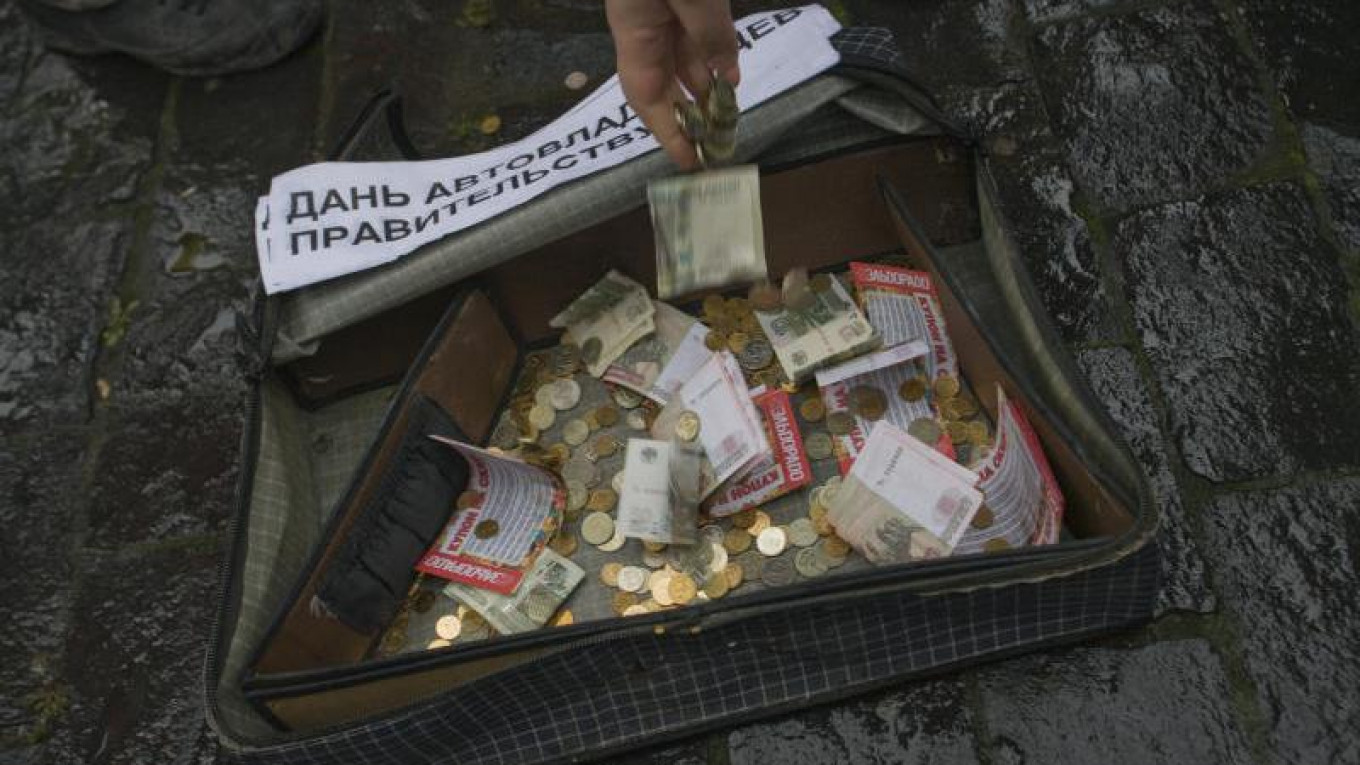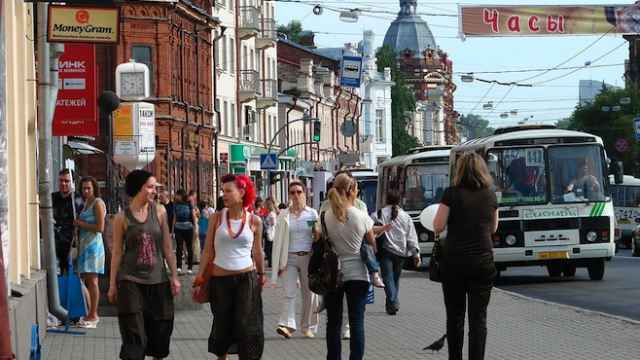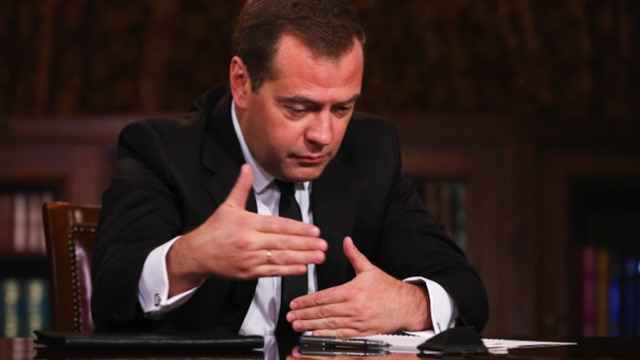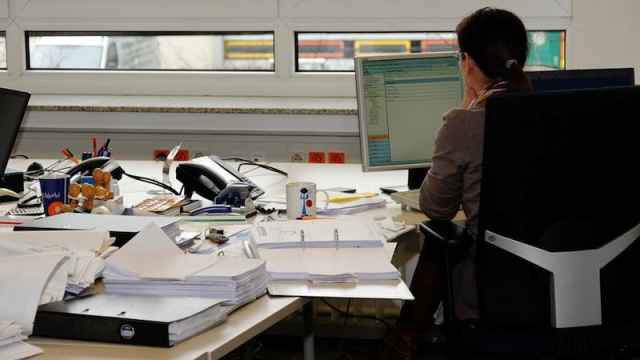Government officials are discussing how unemployed citizens and those who work in the so-called “gray economy” should pay their share toward the country’s infrastructure. According to Labor and Social Welfare Minister Maxim Topilin, such people should pay 20,000 rubles per year. That figure, he said, is “fine, even a little low.”
Soviet citizens were obligated to work, and the authorities officially labeled a person a parasite if he or she labored fewer than four months out of the year.
Prime Minister Dmitry Medvedev, however, feels we should not compare the present with the past era. He explained that this levy is not a tax on parasites and that people have the constitutional right not to work. “We have no liability for that, including criminal liability, as existed in Soviet times,” he said.
“We are talking about involving people who are not officially unemployed but who make use of social services in the system of social payments,” Medvedev explained.
Topilin said the new levy might only apply to able-bodied citizens.
The Government is already actively discussing a bill for the new tax, one finance and economics official said. The idea was on the table during a recent meeting held by Deputy Health and Social Development Minister Olga Golodets. Although who should pay and how much remain unclear, one thing is certain: those working in the informal sector are the largest group of potential payees.
Russia has approximately 16.2 million “invisible” workers, or approximately 23 percent of the total workforce, according to the State Statistics Service. The government considers them employed, although they appear on no official payrolls.
As the number of official jobs in the “white sector” has consistently fallen over the past 15 years, the number of informal jobs in the “gray sector” has correspondingly increased.The number of all employed persons in the economy grew by 3.5 million people, reaching 72.3 million from 2006 to 2015 – a 5 percent increase. The number of employees at large and medium-sized companies fell by 5.4 million people to 34.7 million over the same period – a 13.5 percent decrease. The informal sector swelled over that period by 8.9 million people – a 31 percent increase – accounting for both the rise in the number of job seekers and the decline in the number of jobs in the formal sector.
According to a RANEPA survey conducted in May 2016, 20 million people, or 28.8 percent of all employed persons, are working in the “shadow sector.” They work unofficially or else receive their salaries “under the table” every month. Two-thirds of them are self-employed.
As many as 51.3 percent of all Russians made unofficial payments for “shadow sector” goods and services in 2016, most often for home remodeling, car repairs, tailoring, and even healthcare services. Those informal purchases averaged 6,100 rubles, with a combined total annual outlay of 4 trillion rubles.
The Russian authorities are studying Belarus’s experience in collecting taxes from able-bodied citizens who pay nothing toward their government sponsored health insurance, Deputy Labor and Social Welfare Minister Andrei Pudov said in May.
Belarus introduced the new fee in 2015. As many as 1.2 million Belarussians, or more than 20 percent of the country’s workforce, live and work abroad while remaining Belarussian citizens – meaning that they retain access to public health care services. According to the new law, these “parasites” must pay a tax fee of 420 Belarussian rubles (approximately $220) per year.
Belarussian citizens who voluntarily sign up to pay the tax enjoy a 10 percent discount. Tax evaders receive fines or community service.
It is still too early to draw any conclusions regarding the Belarussian experience, said Tatiana Maleva, director of RANEPA’s Institute for Social Analysis and Forecasting.
The Labor Ministry’s desire to introduce a levy on workers with unofficial incomes is a cause for alarm, argues Elena Dolgikh of the Center for Strategic Research: the usefulness of such a measure is questionable, while the harm it can cause is obvious. It can be complicated and expensive to ascertain exactly where people work.
A Message from The Moscow Times:
Dear readers,
We are facing unprecedented challenges. Russia's Prosecutor General's Office has designated The Moscow Times as an "undesirable" organization, criminalizing our work and putting our staff at risk of prosecution. This follows our earlier unjust labeling as a "foreign agent."
These actions are direct attempts to silence independent journalism in Russia. The authorities claim our work "discredits the decisions of the Russian leadership." We see things differently: we strive to provide accurate, unbiased reporting on Russia.
We, the journalists of The Moscow Times, refuse to be silenced. But to continue our work, we need your help.
Your support, no matter how small, makes a world of difference. If you can, please support us monthly starting from just $2. It's quick to set up, and every contribution makes a significant impact.
By supporting The Moscow Times, you're defending open, independent journalism in the face of repression. Thank you for standing with us.
Remind me later.






